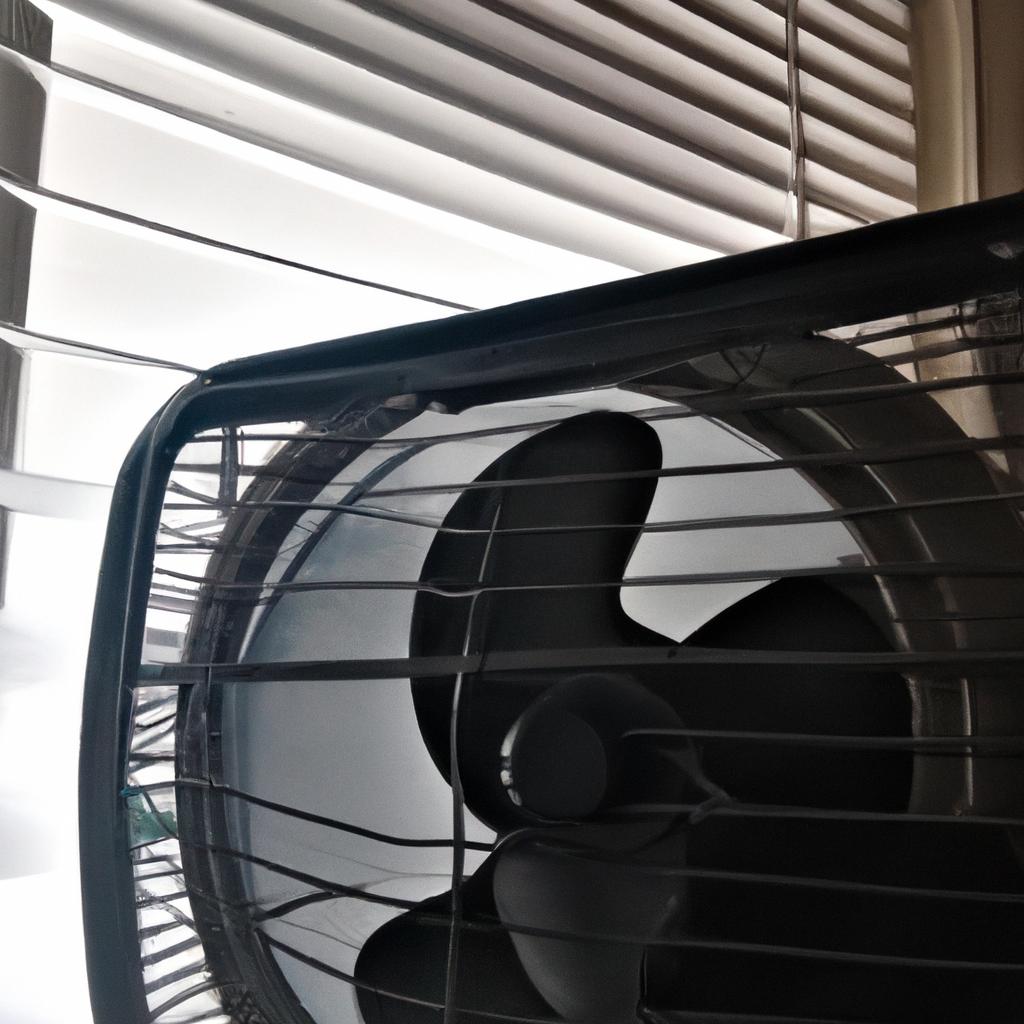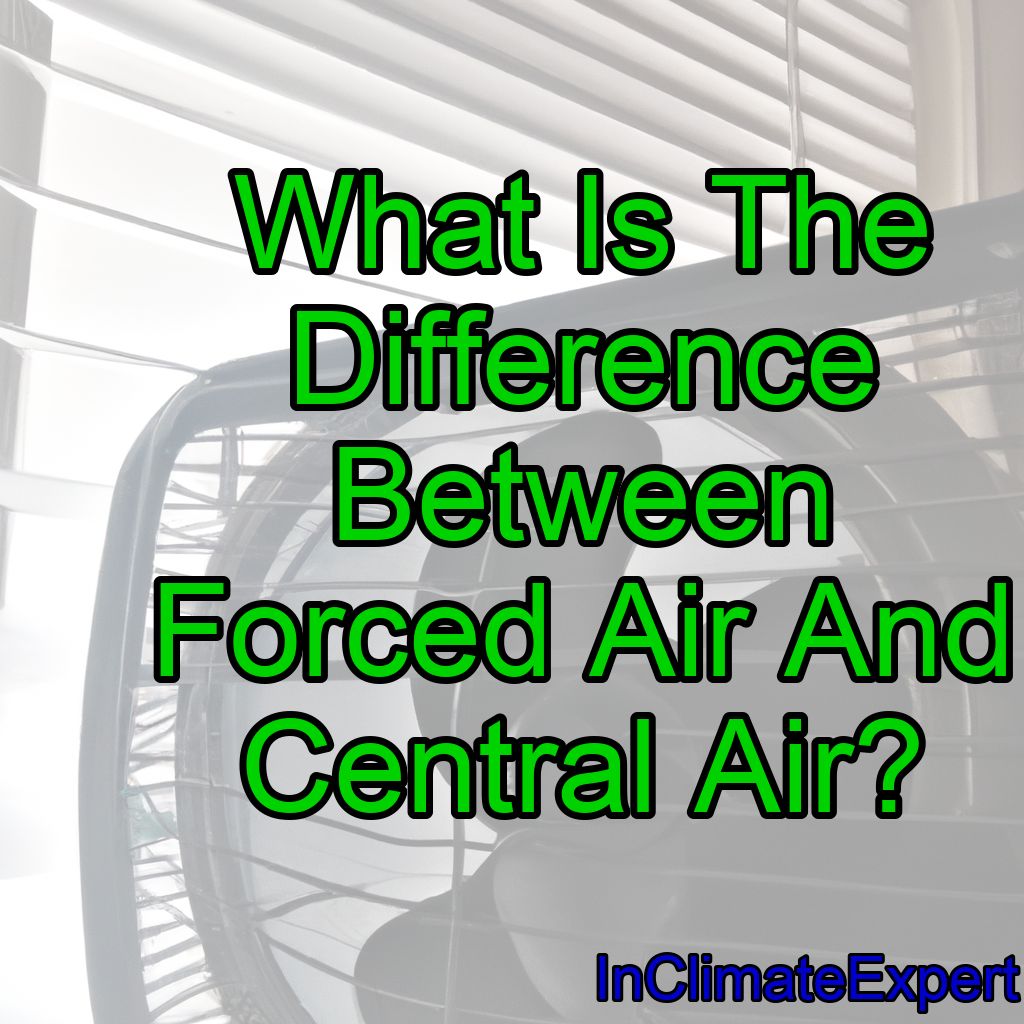When it comes to home cooling and heating, there are two main systems that people often confuse: forced air and central air.
The main difference between forced air and central air lies in the method of distributing cooled or heated air throughout a building. Forced air systems use a furnace or heat pump to heat or cool air, which is then distributed via a network of ducts and vents. Central air, on the other hand, specifically refers to a cooling system (usually an air conditioner) that cools air centrally and distributes it through the same ductwork as the forced air system. In summary, forced air refers to both heating and cooling systems, while central air is exclusively for cooling purposes.
While both types of systems involve a process of delivering conditioned air throughout your home, they differ in their methods and capabilities.
Forced air systems rely on ductwork to distribute heated or cooled air throughout your home. These systems use a furnace to heat the air or an air conditioner to cool it down before it’s blown through the ducts by a blower motor.
On the other hand, central air conditioning systems also use ductwork but have a separate unit specifically for cooling the air. The system pulls hot air out of your home and replaces it with cool, conditioned air that has been chilled by an outside compressor unit.
In this article, we will take a closer look at the differences between forced air and central air so you can decide which system works best for you.
Heating System Overview
When it comes to heating systems, there are many options available for homeowners.
However, understanding the different types of heating systems can be overwhelming.
Generally speaking, heating systems can be categorized into two main types: forced air and hydronic (or hot water) systems. Forced air systems use a furnace to heat air, which is then distributed throughout the house using ductwork and vents.
These systems are often powered by electricity, natural gas or propane.
On the other hand, hydronic systems use hot water or steam to heat the space through radiators or underfloor tubing. Understanding these basic differences is crucial in choosing the right type of heating system for your home.
Types Of Heating Systems
As the winter chill sets in, homeowners begin to rely on their heating systems to keep them warm and cozy. There are various types of heating systems available, each with its own unique features and benefits.

One popular type is forced air heating, which uses a furnace to heat the air and then circulate it throughout the home via ductwork.
This system can be powered by electricity, natural gas, or oil, and provides quick and even heating throughout the house.
However, forced air systems can also be noisy and require regular maintenance to ensure proper functioning.
Moving on to central air conditioning, this system uses a compressor unit located outside the home to cool refrigerant that is then circulated through an indoor evaporator coil. The cooled air is then distributed throughout the home via ductwork.
Central air conditioning is great for controlling humidity levels as well as providing consistent cooling throughout the entire house.
However, it can be costly to install and maintain compared to other cooling options.
When it comes down to choosing between forced air or central air for your home’s heating and cooling needs, there are various advantages and disadvantages that should be considered.
Advantages And Disadvantages Of Forced Air Vs. Central Air
Let’s start with the advantages of forced air; it’s cost-efficient, and installation is relatively easy.
On the flip side, however, it can be noisy and prone to dust and allergens.
Central air, on the other hand, provides a more even temperature, but it’s more expensive and requires more complex installation.
Additionally, it can be more susceptible to outages due to power loss.
Advantages Of Forced Air
Forced air systems have a few distinct advantages when compared to central air.
Firstly, they are generally more affordable to install and maintain due to their simpler design.
Additionally, forced air systems can heat and cool a room quickly, making them ideal for those who want a fast way to adjust the temperature in their home.
Forced air systems also allow for the possibility of adding other features like humidifiers or air purifiers without having to make major modifications.
These advantages make forced air an appealing option for those who want a budget-friendly and efficient heating and cooling system that they can customize according to their preferences.
Disadvantages Of Forced Air
While forced air systems have several advantages, they also come with their fair share of disadvantages.
For instance, these systems can be quite noisy, especially when the furnace turns on and off.
The ductwork can also accumulate dust and debris over time, which can spread throughout the house and negatively impact indoor air quality.
Additionally, forced air systems tend to be less energy-efficient than central air systems as they often require more power to operate.
These drawbacks should be taken into consideration when deciding whether a forced air system is the right choice for your home.
Advantages Of Central Air
On the other hand, central air systems offer several advantages that make them a popular choice for many homeowners.
One major advantage is their ability to cool an entire house evenly, making them more efficient than window units or portable ACs.
Unlike forced air systems, central air units operate quietly and do not require any ductwork, reducing the likelihood of dust and debris buildup.
Additionally, central air systems are known to be more energy-efficient and cost-effective in the long run due to their ability to regulate temperature and humidity levels throughout the house.
Overall, these benefits make central air a viable option for those seeking comfort and convenience in their homes.
Cost Comparison
After weighing the pros and cons of forced air and central air, it’s important to consider the cost comparison between the two.
While forced air systems may be more affordable upfront, they can end up costing more in the long run due to higher energy bills.
On the other hand, central air systems may have a higher initial cost, but they are typically more energy-efficient and can save you money on your monthly bills.
Additionally, central air systems often come with advanced features like programmable thermostats and zoning capabilities that allow you to customize your home’s temperature control.
Ultimately, it’s important to consider both the upfront cost and long-term savings when deciding between forced air and central air.
Conclusion
In conclusion, understanding the difference between forced air and central air systems is important when considering heating options for your home.
Forced air systems use ducts to distribute hot air throughout your home, while central air systems use a refrigerant to cool and circulate air through an intricate network of tubes.
Both forced air and central air systems have their advantages and disadvantages. Forced air systems are typically less expensive to install and maintain, but they can be noisy and may cause uneven heating throughout your home.
On the other hand, central air systems provide more consistent heat distribution, but their installation costs tend to be higher.
Ultimately, when deciding between forced air and central air systems, it’s important to consider both the initial cost of installation as well as long-term maintenance expenses.
Additionally, factors like noise level and heating consistency should also be taken into account.
With careful consideration of each system’s strengths and weaknesses, you can make an informed decision about which type of system is right for your home.




